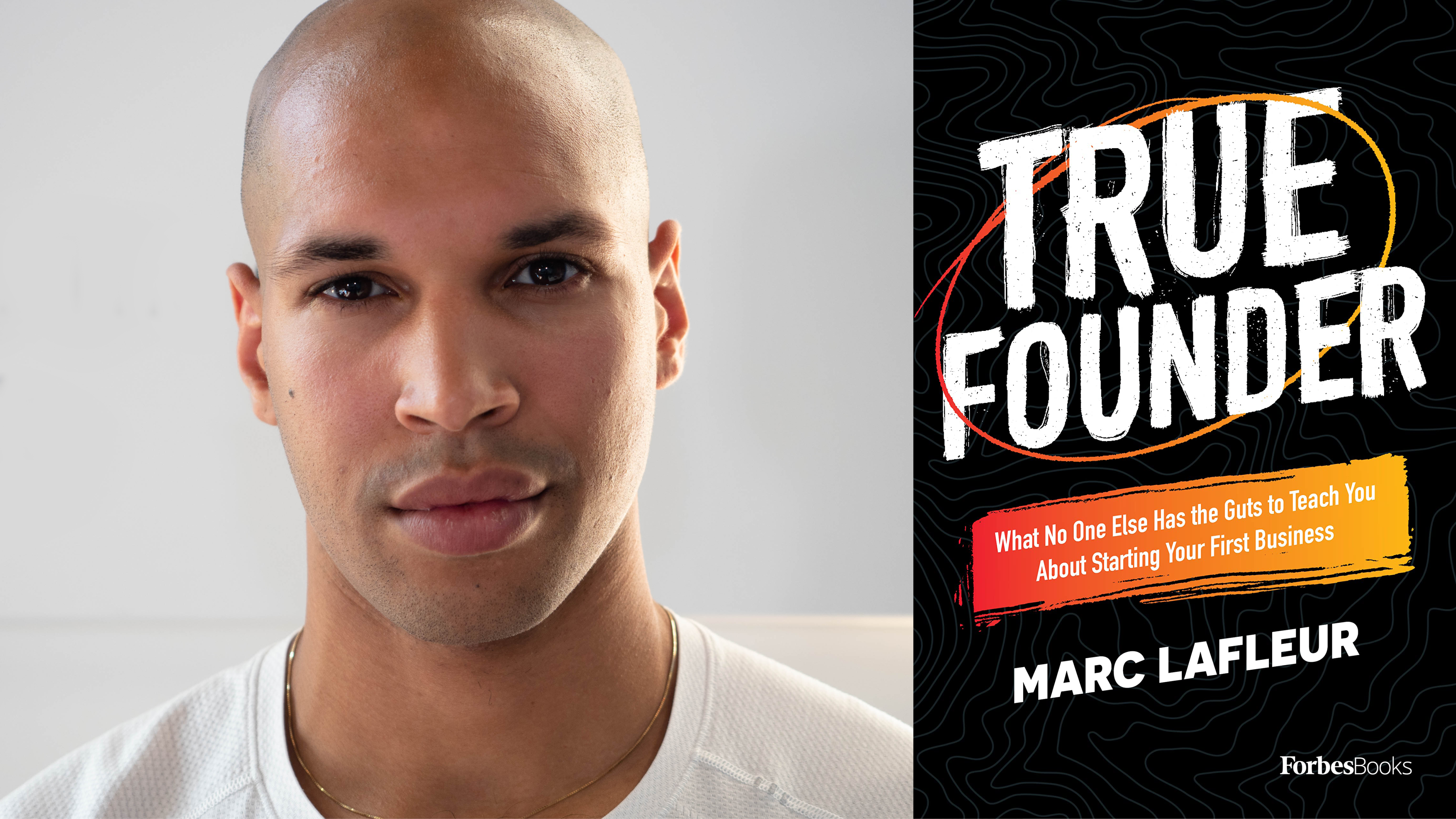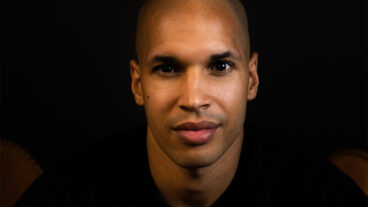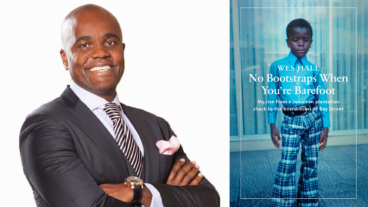With the release of his first book, True Founder, entrepreneur Marc Lafleur is exposing the little-known realities of being a founder and what it really takes to start your own company.
A new speaker on our roster in 2022, Marc has built three businesses from the ground up. After two failed startups, he co-founded truLOCAL in 2016, where he built it into a team of 60+ people, expanded it across Canada and the US, led a successful pitch on Dragons’ Den, and successfully negotiated a $16.7 million acquisition — all within five years.
Rather than another memoir about a CEO looking back at their successes from decades ago, True Founder treats readers to a boots-on-the-ground detail of what an entrepreneur faces today. Marc shares his own experiences, including hard-earned lessons and humiliating mistakes, while pushing back against the growing narrative around work-life balance. He says his book is a salute to people who choose to sacrifice comfort to chase their dream in the entrepreneurial trenches.
We recently spoke with Marc to learn more about his new book and explore some of the lessons he shares in True Founder — available in stories today! Marc also speaks to his entrepreneurial journey in his keynote “Are You Sure You Want to Delete? The Highs and Lows of Entrepreneurship”. Contact us to learn more.
Speakers Spotlight: What are the biggest difficulties that entrepreneurs face today?
Marc Lafleur: The biggest challenge is the ridiculous pressure that comes with it and the misconception that a work-life balance actually exists. This is why founders fail — everyone tells them that they work too much, and they need a break. But if you’re a first-time founder, you don’t have a choice. You have to go all in because otherwise you fail, and failure leads to bankruptcy.
In any other area where someone sacrifices everything towards a goal — like being a top athlete, a Billboard artist, or a Navy Seal — you are a hero. Sacrifice towards that kind of goal is celebrated, but in business, it just means you’re a workaholic, motivated by money. That’s a joke. Succeeding as a founder requires the same amount of commitment and should be encouraged.
If you’re on your second or third company, then yes, you can create more of a work-life balance. But if this is your first business, you don’t have a choice.
SpSp: What are the biggest opportunities right now for people looking to start their own business?
ML: With Open AI and ChatGPT, we’re in a world right now where you can spit out a million-dollar company in a weekend. Whether you’re providing a specialized AI product or building on an existing AI engine, you can re-skin it to be the perfect SEO writer or rejig it to have a certain personality, charge $5-9 a month, and then sell it within a year.
New tech opens up so many possibilities. On my end, truLOCAL succeeded because paid advertising and digital marketing provided our generation of founders a reach that was previously unavailable unless you had a big budget. Once you crack the code as to how you acquire clients, you can pour as much money into it as you want, and grow as quickly as you want, based on your risk tolerance.
Now, it’s a different picture. It changes so quickly, which is why I say that being a founder means you have to be a professional problem solver. Don’t specialize in one thing, or you are going to fail. The world moves too fast. The problems of growing a business four years ago are very different than what they are today. But if you see yourself as a problem solver, you can leverage today’s tools to continue growing.
SpSp: What was the hardest learning curve for you when you started truLOCAL?
ML: It was understanding when to transition as a founder. I learned that with every $2 million in revenue, your business changes, at least until you reach $15 million. As the business grows, some founders naturally grow with it and understand that their role changes. And then some don’t. Some are intimidated about learning new skills that they haven’t experienced before, and some just fear the new challenges that growth brings.
People don’t think about this transition when they first start out, and if you do it well then you don’t even notice it. It’s when you’re not doing it well that it gets noticed. This comes back to being a professional problem solver; natural problem solvers will excel.
The big milestones you reach as your company grows, like hiring employees, raising money, hiring agencies, etc., require different skills. As a founder, you have to grow with your company or have the self-awareness to delegate and build your team.
SpSp: What was the most important lesson you learned while growing and leading truLOCAL?
ML: You work for your team. So many people think that being a leader is about the glory of the spotlight, but that’s a byproduct. Once you have 20 employees, the whole point of a team is to have 20 people doing their jobs better than you alone.
Founders can struggle with letting go, but if they try to do everything themselves, it won’t be good. Leaders need to learn how to empower their team because they can accomplish a lot more than one person can. And each and every one of them should be better at their jobs than me, that’s why I hired them.
Early on, I struggled to let go. I wanted it done a certain way, but I learned it’s ok to not have it done my way. That you’re actually able to get more done by trusting other people to do it their way.
SpSp: Through the truLOCAL Equal Opportunity Grant, you are supporting and empowering minority entrepreneurs. What advice do you share to your grantees?
ML: The reality is as a minority founder you are going to be told “no” more than “yes”; right or wrong, more doors will close in your face. On the flipside, this means you are better prepared to deal with the challenges of being a founder, because you are used to hearing “no”. Those who haven’t spent their lives hearing “no”, won’t know what to do with it. But, as minorities, you’re better prepared because you already walked into that room assuming you will hear “no”. We’re already problem solvers because we have to be, so entrepreneurship was made for us.
With the launch of True Founder, Marc created a new grant to serve first-time founders. The Ultimate First-Time Founder Business Grant will reward one founder with over $50,000 in agency prizes. Marc says that finding good agencies to help take your business to the next level is hard, not to mention expensive, so he’s hoping to help a founder supercharge their business through this new grant.
Contact us to learn more about Marc and what he can bring to you next event as a keynote speaker on leadership, entrepreneurship, and the new world of work.




